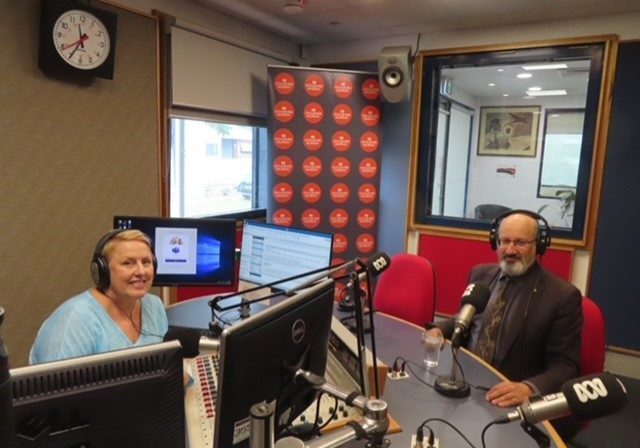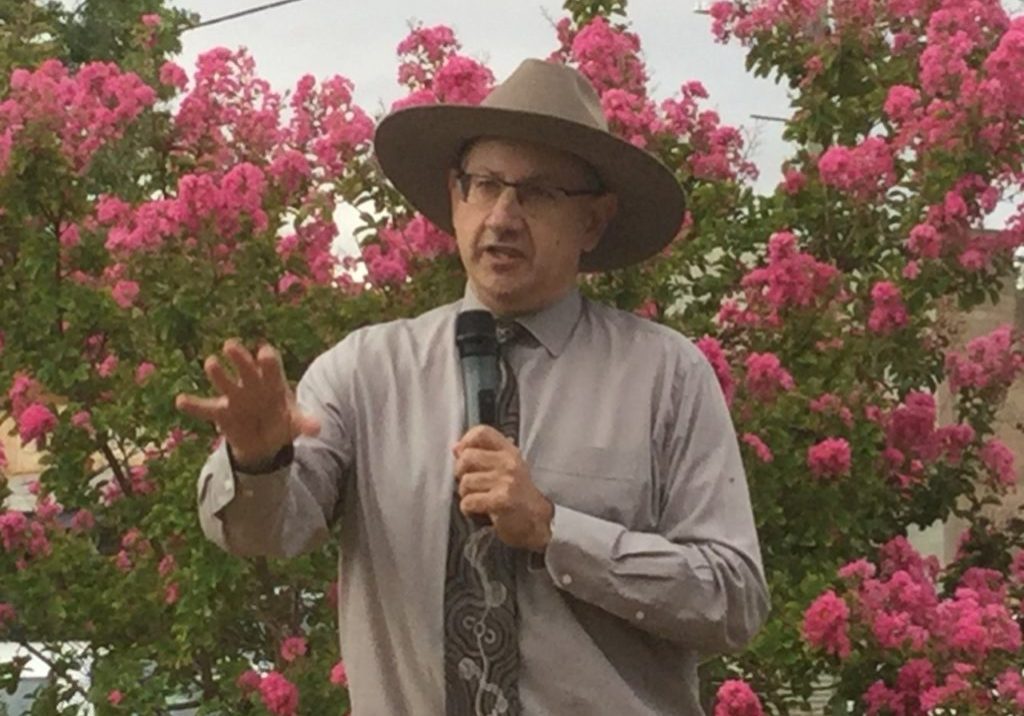Australia/Israel Review
Deconstruction Zone: Doom and Gloom along the Tigris
Mar 14, 2005 | Ted Lapkin
Ted Lapkin
American novelist Mark Twain once remarked that reports of his death had been greatly exaggerated. If the author of Huckleberry Finn were alive today, he’d doubtless make a similar observation about the ideologically-motivated doom and gloom merchants who are peddling a narrative of looming disaster in Iraq.
The recent Iraqi elections provided a textbook example of the agenda-driven journalism that has dominated press coverage from that region. While Bing Crosby famously sang “you gotta accen-tuate the positive,” the ideologues-cum-reporters of the ‘mainstream media’ (MSM) have been hyping the negative, rather than eliminating it.
With breathless anticipation, Robert Fisk of Britain’s Independent prognosticated fire and brimstone on polling day in Iraq. “In Baghdad on Saturday they were supposed to be preparing for an election. But they were preparing for war,” Fisk intoned. “They were waiting for the rivers of blood that the insurgents promised.”
But while every casualty of terrorism is a calamity, in the grand scheme of things the effusion of blood on election day was more trickle than torrent. Over eight and a half million Iraqis braved the threats of al-Qaeda leader Abu Musab al-Zarqawi to exercise their natural right of free suffrage for the first time since the 1920s. Despite a boycott of the poll in some of the Ba’athist strongholds in the ‘Sunni Triangle,’ the number of people casting ballots constituted a very healthy 58% of registered voters throughout Iraq. When the dust had settled, election day along the Tigris proved to be far more triumph than tragedy.
The prospect of a successful election constituted a mortal menace to the Islamist insurgents in Iraq. For al-Qaeda, the struggle against democracy is a zero-sum existential conflict. Political pluralism in Iraq is intolerable to Abu Musab al-Zarqawi because it contradicts his desire for a resurrected Islamic caliphate. For someone whose worldview is governed by 7th century concepts of tolerance and comity, the emergence of a multi-ethnic society where equality of rights is the rule is anathema.
And a tape released a few days before the election indicated that al-Zarqawi recognised that Iraqi ballots posed an even greater danger to his worldview than American bullets. “We have declared a fierce war on this evil principle of democracy and those who follow this wrong ideology,” the al-Qaeda leader declared. Heaven forbid that women should be given the opportunity to vote and pursue an occupation.
And it seems that the more partisan members of the journalistic profession shared al-Zarqawi’s fear and loathing for the concept of government of, for and by the people: at least as it applied to Arabs. Writing in the leftist weekly The New Statesman, the international news editor of Britain’s Channel 4 television agonised: “I feared I had become a stooge.” Lindsay Hilsum appeared to care not a whit about the Iraqi people’s emergence into the sunlit uplands of democracy after having languished for so long in the dark depths of Ba’athist despotism. She seemed obsessed; instead, by the prospect that success in Iraq might buttress the political fortunes of British Prime Minister Tony Blair: “Embedded with the British forces, I came to Basra to report on one election, but my stories may be used in the campaign for another.”
It was a remarkable display of almost xenophobic insularity for a journalist whose bailiwick is supposed to encompass international affairs. Hilsum reduced the Iraqi people to the status of ciphers and non-entities, mere pawns in the only game that really matters to her: the upcoming British elections. And for a publication that regularly accuses conservatives of callous indifference towards the outside world, Hilsum’s piece was an even more amazing demonstration of leftist hypocrisy and double standards.
But then, The New Statesman publishes a regular column by radical leftwing filmmaker-cum-propagandist John Pilger. In light of Pilger’s penchant for factually implausible conspiratorial quasi-journalistic frothings, it would be an exercise in futility to expect any sort of journalistic integrity from that quarter.
But such duplicity is not universal throughout the anti-war Left. In a piece entitled “What if Bush has been right about Iraq all along?,” Chicago Sun-Times columnist Mark Brown had the intestinal fortitude to confess the possibility that his opposition to the war might have been founded on error.
Brown began his article with the declaration that he “opposed the war since before the shooting started.” Yet the sight of Iraqis patiently queuing to vote in quiet defiance of al-Qaeda intimidation attempts caused the columnist to reconsider his position. He pondered aloud whether perhaps the establishment of a “peaceable democratic government in Iraq” might be “worth something,” after all.
Yet intellectual honesty of the sort illustrated by Mark Brown’s ruminations proved much more the exception than the rule within leftist circles. On the day immediately following the elections, the only mention of Iraq that could be found in Philip Adams’ column in The Australian referred to the “ongoing mess” in that country.
And as one progresses outward along the spectrum of left-wing Australian politics, the silence of the moderate leftists on the Iraqi elections metamorphoses into increasingly strident denunciation. Thus Rohan Pierce of Green Left Weekly predictably described the balloting in Baghdad as yet another Machiavellian exercise in evil American colonialism. “For most activists in the global anti-war movement,” Rohan declared, “it’s obvious that the US-engineered January 30 elections in Iraq have not ushered in a new era of democracy nor fundamentally changed the nature of the brutal, US-led occupation. But opponents of the occupation must consider to what extent the Iraq elections have shored up Washington’s imperial project.”
They say that politics make strange bedfellows. And the sight of hardcore socialists and anarchists making common cause with radical Islamic theocrats constitutes the end-all-and-be-all of political odd couplings. But it seems that the Judeophobia shared by these otherwise ideologically disparate groups is enough of a common denominator to unite totalitarians of all stripes. Islamo-fascists and leftist revolutionaries of the world unite; you have nothing to lose but the Jewish state.






